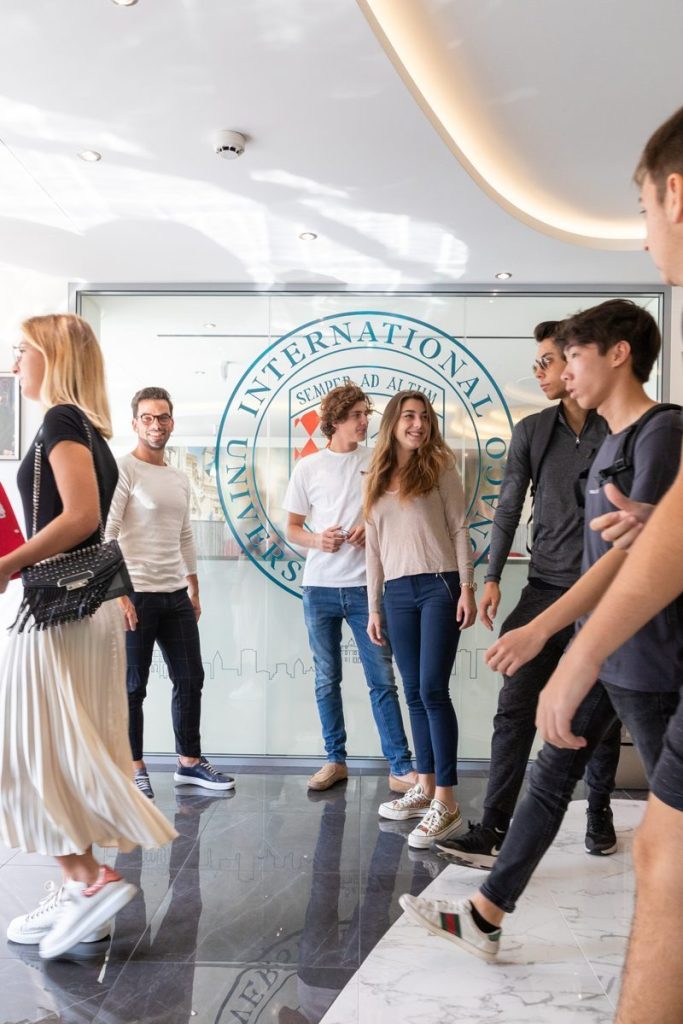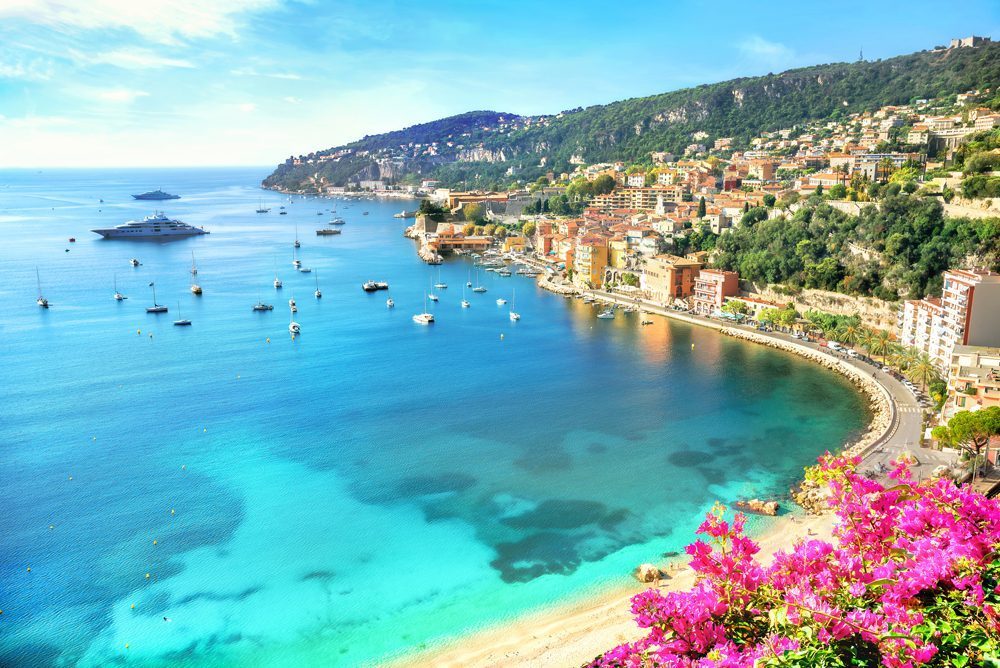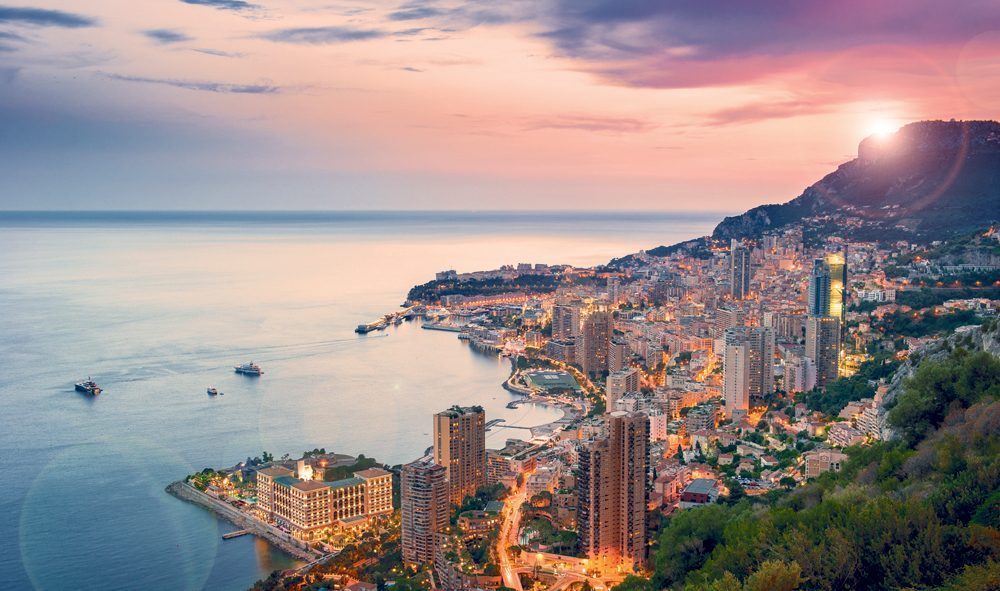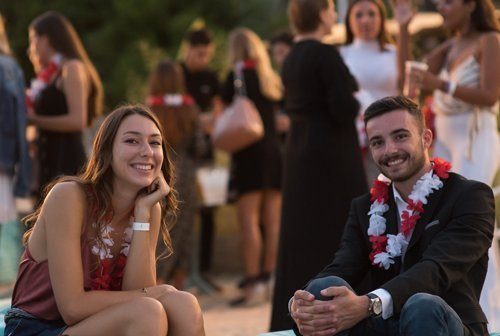Before Your Arrival
Visa
If you are a non-EU citizen, you will need to apply for a Visa at the Consulate of France (or Embassy of France or Visa Center) of your country of residence as soon as you are admitted at IUM.
Monaco doesn’t have its own visa services; all applications go through the French consular authorities.
Important: it may take a while to get an appointment, so this is an administrative procedure that you need to start taking care of as soon as possible. Our Student Services office will be happy to guide you through this process, so don’t hesitate to get in touch with us.
Which visa you apply for depends on the country where you decide to live.
Look carefully at the housing offers before deciding which visa to go for.
- If you choose to live in Monaco, you will need to apply for a Long Stay Student Visa.
If you plan to live in Monaco, you can apply for a Monaco Long Stay Visa, but please note that it is only valid for 3 months. You will need to apply for residency in Monaco within the first two months of arriving. Here is all the information online on how to apply for residency.
Note that the requirement of sufficient funds for obtaining a Monaco residence permit is very high and typically requires opening a Monaco bank account unless you have family, a salary, or a business in Monaco. It’s advisable to inquire with the Monaco government directly on how to acquire residency and what documents are needed. - If you choose to live in France, you will need to apply for a Long Stay Visitor Visa called VLS-TS type D visitor. This visa allows you to reside in France and study in Monaco.


5 Steps
1. Check if you need a visa : https://france-visas.gouv.fr/en_US/web/france-visas
2. Before making an appointment with the French Consulate/Embassy, contact the Student Services office so we can give you all the information and supporting documents you will need. Bachelors’ Students: studentservices.bachelor@monaco.edu or Masters’ Students: studentservices.master@monaco.edu
3. Once you have talked to one of our student services officers, locate the closest Consulate/Embassy to make an appointment.
4. There will be several documents to bring to your appointment, which will be detailed during the visa application process.
5. Upon arrival, you will have 3 months to go to the immigration office (Office Français de l’Immigration et de l’Intégration – OFII) and get your passport stamped. We will help you with this step once you arrive at IUM.
Where to Live?
Students often ask for advice and recommendations about where to live. France borders Monaco on three sides and the Mediterranean Sea on the other side.
IUM is in the Condamine district, the heart of the Principality, which makes the French cities of Cap d’Ail and Beausoleil popular locations for our students – within walking distance or a short bus ride. A bit further east, Roquebrune-Cap-Martin, and Menton are also a quick train ride away (about 10mn). If you wish to live in a bigger city in France, Nice, further west, is at only 20mns by train.
Housing
Finding a place to live is one of the first things you will need to consider.
As part of the INSEEC U group, we partner with a student housing platform where landlords and rental agencies can post their accommodation offers. IUM candidates are given the access to the platform when their application is accepted.
Tips for Renting in France
- It is recommended to pay for your accommodation through a money transfer directly from your bank, avoid third-party websites.
- Check the address of accommodation on Google maps.
- Do not transfer the total money amount to the accommodation provider until you see the place. You may be asked to pay several months’ rent before the entrance.
- Do an inventory/walkthrough, take photos, and write down everything in the apartment before moving in and the condition of each of the rooms.
- It will be handy to have at least one bill under your name for utilities, phone, renter’s insurance, etc. These documents are considered a proof of address, “justificatif de domicile,” which is frequently required to open a bank account or subscribe to a mobile phone provider.
- In France, it is mandatory to subscribe to a renter’s insurance that will cover the accommodation and your belongings in case of fire, water damage, etc. This insurance also usually comes with “Responsabilité Civile,” personal liability insurance, which is also mandatory.


Your Arrival in Monaco
Getting to Monaco
The nearest airport is Nice Côte d’Azur Airport, in France.
From there, you can reach Monaco in about 30-45mn.
- By Bus Line 110 for 22€/person
- By Taxi for about 90€
- If you wish to live the Monaco experience, helicopter rides are an option:
it will take you 7mn to get to Monaco, and costs 130€.
Opening a Bank Account
The most common type of bank account is called a “compte courant.” It will be helpful to have a local bank account if you need a phone/internet subscription. Several banks in the neighboring towns of Cap d’Ail and Beausoleil count IUM students as their clients, so there are a few options available to you.
To open an account, you will need to provide:
- ID or passport card
- Justificatif de domicile (see tips)
- Your housing contract (make sure your name appears in it)
- Your Letter of Admission received from IUM
- For minors, it will be easier if you come with one legal guardian
- Some banks will require an initial deposit, but some others don’t. Make sure you check with a couple of banks first, and feel free to contact Student Services if you need any advice.
Insurances
All students enrolled at IUM are required to have adequate health and personal liability coverage during their studies.
Health Insurance
All students are required to have health insurance during their studies – “Assurance santé.” This insurance covers them in Monaco and in their country of residence (France or Italy, for example).
Renter’s Insurance
French law requires tenants to have renter’s insurance – “Assurance habitation.” This insurance covers:
- Damage or loss of personal property (including computers and valuable items) in case of theft, fire, or water damage.
- Theft and damage to the landlord’s property or belongings and repairs for broken glass to windows or sliding doors.
The insurance rate will be proportional to the estimated value of students’ personal property.
Personal Liability Insurance
It is also mandatory for everyone to have personal liability insurance – “Responsabilité Civile.” Often this liability insurance is included in the home insurance contract.
Many of our students have taken out the Globe Partner, which offers both health and personal liability coverage.

Orientation at IUM
The Orientation days are a significant step for all new students. During this time, students will have a formal presentation of their program by each Program Director; they will meet the Academic Administration & Student Services Team.
Students are required to give the original versions of the documents they uploaded during the online application, and they receive the student cards, class schedule, etc.
During this time, there will be English placement tests for those students who need to be assessed.
All staff members will be available for any questions students may have.
At the end of the orientation week, we typically organize a party with professors and staff for all our new students, a great way to start the new academic year together!
For any questions about Housing, Insurance, or Visa/Residency Card, please contact the Student Services:
- For Graduates at studentservices.master@monaco.edu
- For Undergraduates at studentservices.bachelor@monaco.edu


